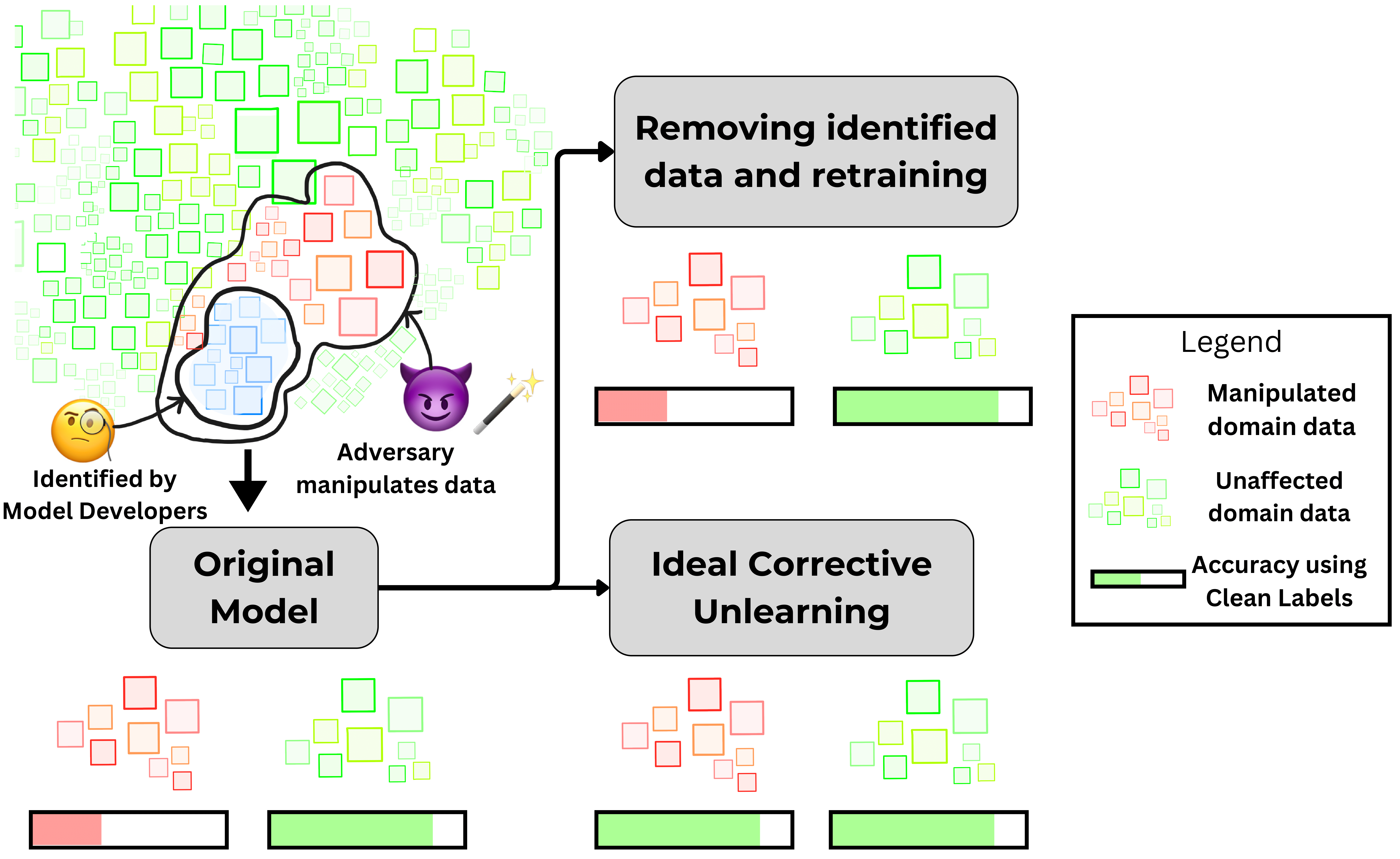Corrective Machine Unlearning
Machine Learning models increasingly face data integrity challenges due to the use of large-scale training datasets drawn from the internet. We study what model developers can do if they detect that some data was manipulated or incorrect. Such manipulated data can cause adverse effects like vulnerability to backdoored samples, systematic biases, and in general, reduced accuracy on certain input domains. Often, all manipulated training samples are not known, and only a small, representative subset of the affected data is flagged. We formalize "Corrective Machine Unlearning" as the problem of mitigating the impact of data affected by unknown manipulations on a trained model, possibly knowing only a subset of impacted samples. We demonstrate that the problem of corrective unlearning has significantly different requirements from traditional privacy-oriented unlearning. We find most existing unlearning methods, including the gold-standard retraining-from-scratch, require most of the manipulated data to be identified for effective corrective unlearning. However, one approach, SSD, achieves limited success in unlearning adverse effects with just a small portion of the manipulated samples, showing the tractability of this setting. We hope our work spurs research towards developing better methods for corrective unlearning and offers practitioners a new strategy to handle data integrity challenges arising from web-scale training.
PDF Abstract


 CIFAR-10
CIFAR-10
 CIFAR-100
CIFAR-100